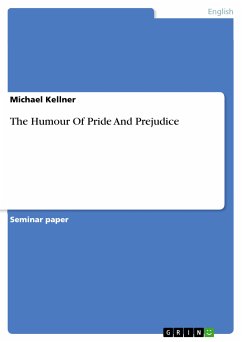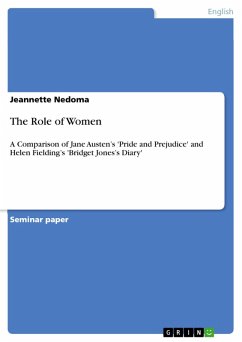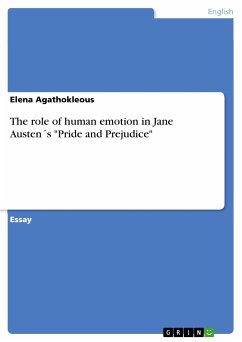Seminar paper from the year 2005 in the subject English Language and Literature Studies - Literature, grade: 2, University of Kassel, language: English, abstract: "Humour is the quality of being amusing or comic: (...) the ability to appreciate things, situations or people that are comic; the ability to be amused: (...)" (Oxford Advanced Learner's Dictionary 1995). In Latin the word "humour" stands for moisture. In the ancient world it was meant as the right and healthy condition of body fluids. But nowadays it is a well known element of Art, especially of literature. The need of people to get entertained in a humoristic way is placed in nearly all epochs of mankind. Humour can be distinguished between "clean" variants and "dark" humoristic styles like satire, irony, parody or even sarcasm. A well known example is the so called black humour. Individual views or interpretations of humour depend on different nations, social classes, or mentality. For example England is famous for the English Humour, which can be compared with the "dark" sides of humour (Encarta Enzyklopädie 2003). Jane Austen is a representative for the English humoristic style.
Dieser Download kann aus rechtlichen Gründen nur mit Rechnungsadresse in A, B, BG, CY, CZ, D, DK, EW, E, FIN, F, GR, HR, H, IRL, I, LT, L, LR, M, NL, PL, P, R, S, SLO, SK ausgeliefert werden.









